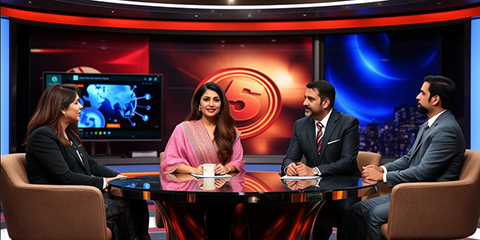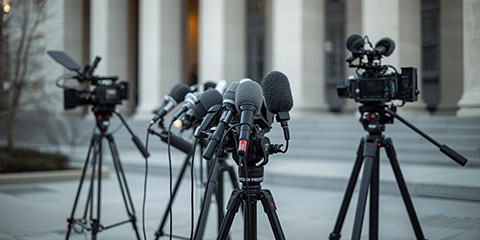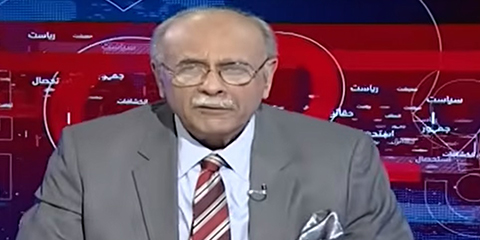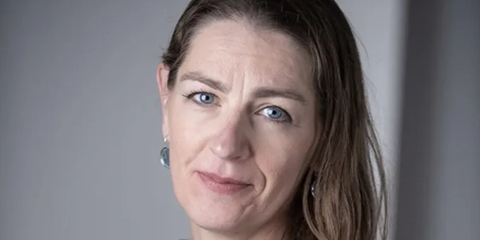Inside the editorial reforms that changed Pakistani broadcast journalism
JournalismPakistan.com | Published 3 years ago | Anwar Raza
Join our WhatsApp channel
Muhammad Ibrahim Raja’s groundbreaking reforms transformed Pakistani television journalism, setting new ethical standards for reporting, safety, and accountability while reshaping coverage of sensitive and taboo subjects.Summary
ISLAMABAD — Since the early 2000s, Pakistan’s television news industry has witnessed an extraordinary transformation. Beginning with Geo News and followed by the rapid launch of over forty private news channels, the country moved from delayed print reporting to the immediacy of 24-hour television news. This shift revolutionized access to information but also brought serious ethical and editorial challenges: sensationalized reporting, exposure of victims’ identities, unverified breaking news, and selective coverage of extremist-linked crimes.
During this turbulent expansion, professional oversight lagged behind the pace of growth. Amid this chaos, veteran journalist Muhammad Ibrahim Raja, a founding member of Geo News and later Bureau Chief at several leading channels, emerged as a key reformer. His pioneering newsroom policies and ethical frameworks reshaped how Pakistani television reported on sensitive and high-stakes stories.
Protecting Victims and Ensuring Ethical Coverage
Raja introduced strict editorial policies to protect the identities of children and victims of sexual abuse. Before these reforms, many channels routinely aired victims’ names, faces, and videos for higher ratings, causing lasting trauma and public humiliation. His approach, emphasizing privacy, verification, and sensitivity, was first applied during the 2015 Kasur child abuse scandal, where hundreds of victims could have been exposed.
In a society where perpetrators often operated under religious cover and where cultural pressures silenced survivors, Raja’s policies set new ethical standards. His reforms, later adopted across the industry, ensured that dignity and accuracy coexisted in coverage of such sensitive crimes.
Exposing Religious Clerics Involved in Child Abuse
In Pakistan’s conservative media environment, naming religious clerics involved in verified cases of child sexual abuse was long considered taboo. Raja broke this silence by insisting that perpetrators, regardless of religious status, be named once their crimes were verified. This courageous policy raised public awareness, protected potential victims, and challenged media self-censorship surrounding abuse in religious institutions. It was a defining moment in the evolution of responsible television journalism.
Humanizing News Stories
Raja encouraged reporters to look beyond statistics and official statements, focusing instead on the human stories behind events. After the 2016 Quetta blast that killed more than seventy lawyers and civilians, his team highlighted the lives of the lesser-known victims, including a college student who had already lost all male relatives in prior attacks.
These deeply personal narratives gave audiences a more profound understanding of tragedy, shifting journalism from cold facts to compassionate storytelling. The approach not only improved viewer engagement but also initiated public discourse on gender, extremism, and social resilience.
Field Safety and Editorial Responsibility
Recognizing the dangers faced by frontline reporters, Raja implemented a critical principle: Do not become the story yourself. Previously, many journalists were sent directly into active crime scenes or terrorist zones, resulting in injuries and deaths. His safety-first approach introduced clear field protocols that allowed thorough coverage without compromising the security of journalists. These guidelines have since become industry standards in Pakistan’s broadcast newsrooms.
Transparent Coverage of Extremism and Terrorism
Another major reform involved naming extremist organizations responsible for acts of terrorism. During incidents like the 2014 Peshawar school attack and the 2016 Bacha Khan University assault, Raja’s newsroom explicitly identified the responsible groups after verification. This practice promoted transparency, accountability, and a more informed public discourse about terrorism and its ideological roots.
Dedicated Desk for Honor Killings and Gender-Based Violence
Raja also led groundbreaking investigative coverage into honor killings, including the case of a teenage girl burned alive in Abbottabad by her family and local elders. His reporting led to arrests and widespread outrage, sparking a national conversation about violence against women and teenage girls.
To sustain focus on such crimes, Raja established dedicated investigative desks to continuously report on gender-based violence and honor killings, ensuring these stories remained a part of the national dialogue rather than isolated tragedies.
Specialized Beats and Investigative Units
Before Raja’s tenure, many television channels assigned reporters randomly, regardless of expertise. This often resulted in incomplete or ethically flawed reporting. Raja professionalized the process by introducing specialized beats for politics, crime, and social issues, each managed by trained journalists with subject-specific knowledge.
He also enforced protocols for handling leaked information, requiring verification of sources and motives before airing stories. These structural changes strengthened newsroom credibility, accuracy, and editorial transparency.
Impact on the Industry
Raja’s reforms left a lasting mark on Pakistani television journalism. His emphasis on victim protection, accountability, safety, and human-centered storytelling elevated industry standards and reshaped audience expectations.
As Pakistan’s media continue to evolve, challenges such as misinformation, digital ethics, and political pressures persist. Yet, Raja’s framework provides a strong foundation for ethical journalism in the digital age.
Separately, Pakistan Federal Union of Journalists (PFUJ) President Afzal Butt has advanced journalist welfare and safety through initiatives like wage awards and nationwide insurance campaigns, further strengthening the professional ecosystem for reporters across the country.
Pakistan’s media future will depend on sustained editorial integrity, professional leadership, and innovation rooted in ethics and truth.
Anwar Raza is the president of the National Press Club, Islamabad.

























